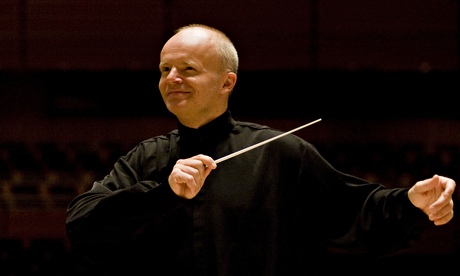
For his final two concerts as music director of the Royal Northern Sinfonia, Thomas Zehetmair has opted for Beethoven. The grand finale will feature the composer's most ubiquitous creation, the Fifth Symphony. But the penultimate programme was devoted to the Missa Solemnis, possibly the most underexposed of Beethovian masterpieces. It's not hard to understand why performances of the mass are comparatively rare, as Beethoven's setting is difficult to perform, challenging to listen to and was torture to write. A contemporary who called in during work on the Credo found the composer's features "distorted to the point of inspiring terror". It was possible to detect similar anguish flashing across the faces of the Sinfonia chorus, though they did a admirable job of maintaining equilibrium as Beethoven's tempestuous lines bucked and writhed beneath them.
Thomas Zehetmair's interpretation suggests that the Missa Solemnis is, above all, a mass of uncertainty – an exultant appeal to the heavens so blazingly emphatic that one detects a note of anxiety that the heavens may not be listening. It was especially noticeable in Zehetmair's handling of the falling-third motif that functions as the work's centre of gravity – representative of the Holy Trinity perhaps? Or the sound of prayers showering back to Earth unanswered? Zehetmair injects plenty of momentum – at 70 minutes, the duration was on a par with John Eliot Gardiner's recent recording with the Monteverdi choir.
The soloists were all solid, though the orchestral sound-painting was truly sublime. The ferocious attack of the lower strings during the Crucifixus had the brute force of nails driven through flesh; leader Bradley Creswick and principal flute Juliette Bausor floated with gossamer lightness in their joint solo during the Sanctus. Although it felt like the most secular interpretation of the mass you are likely to hear, Beethoven's instruction to perform the work "from the heart that it may go directly to the heart" was obeyed to the letter.

